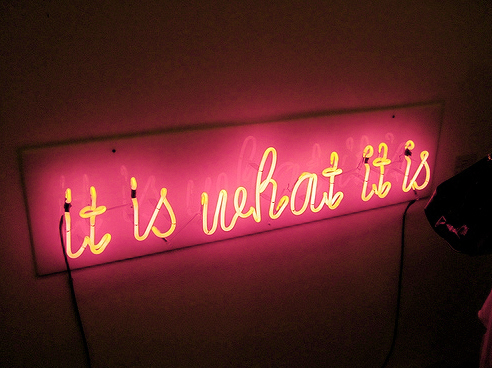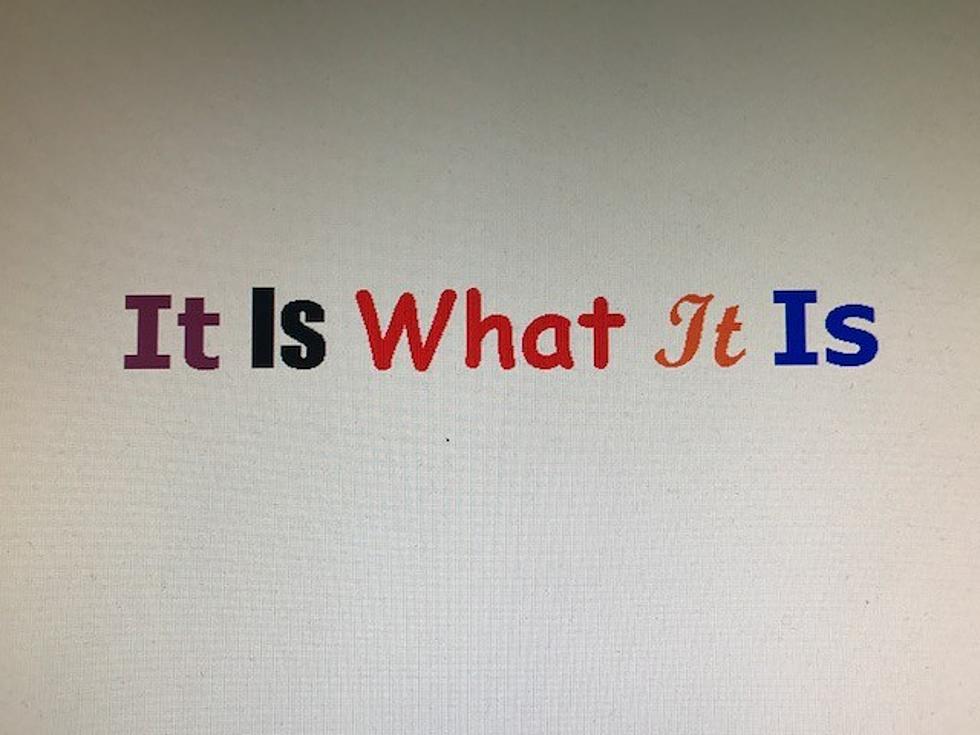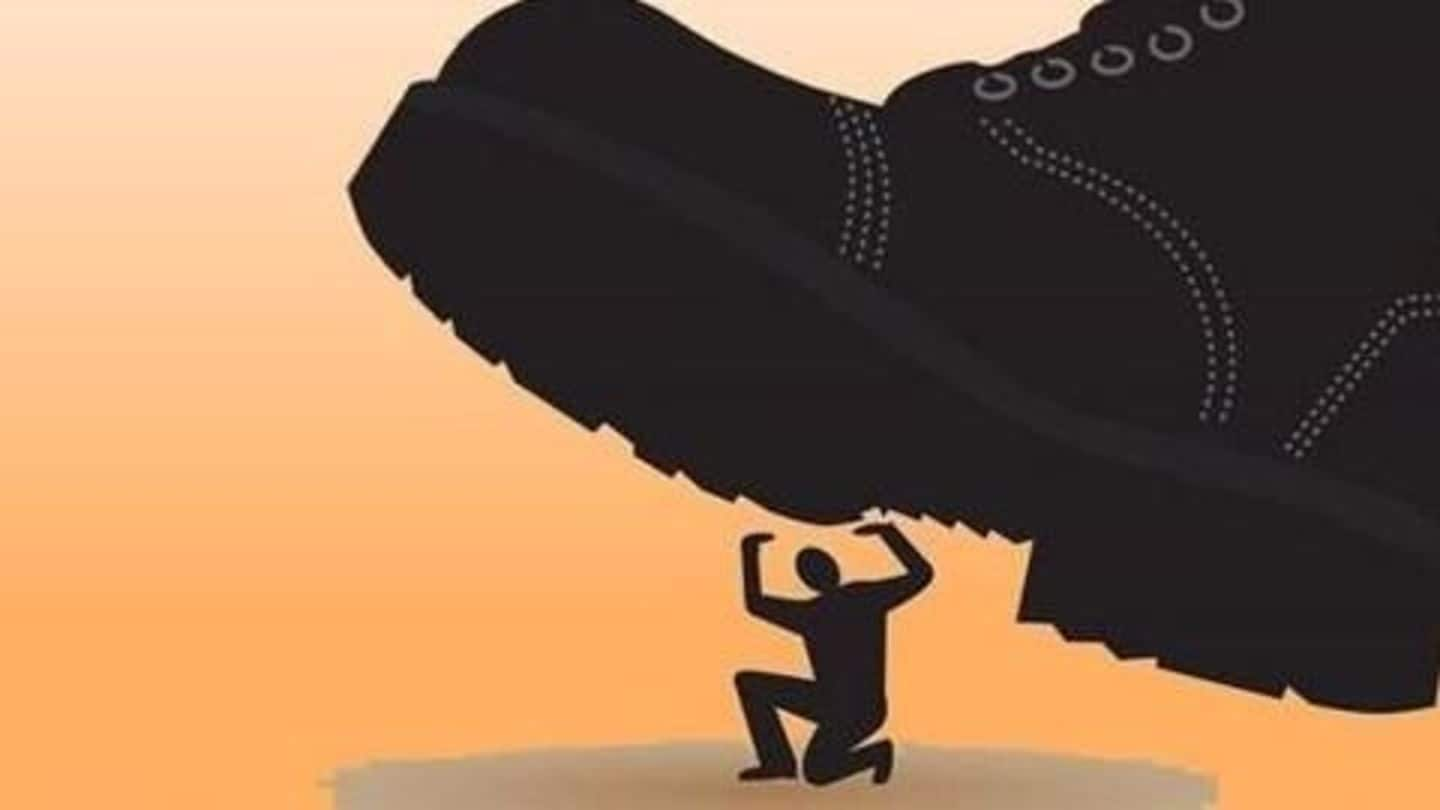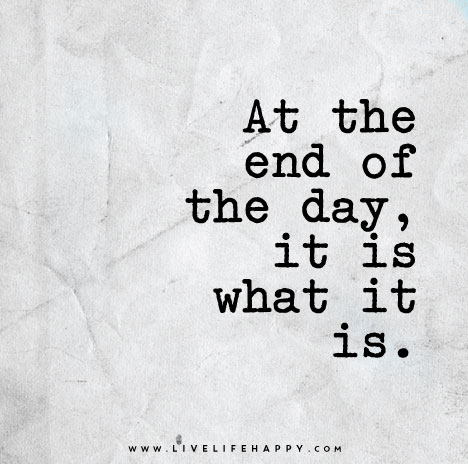 |
| https://www.lovethispic.com/image/97982/it-is-what-it-is |
A Sense of Doubt blog post #2440 - NO MORE "it is what it is"!!!
People love what's popular.
One such popular crutch in fashion right now is the phrase "it is what it is."
I was already ready to argue that we abolish this stupid phrase from the lexicon before I spotted it used in this news story:
https://www.espn.com/tennis/story/_/id/32161394/shelby-rogers-speaks-social-media-harassment-says-anticipates-death-threats-us-open-loss
"You could probably go through my profile right now -- I'm probably a 'fat pig' and words that I can't say right now," Rogers said. "But, it is what it is. You try not to take it to heart, and it's the unfortunate side of any sport and what we do."
NO!!

"It is what it is" has become a fall back phrase for people to fill in for almost anything at all without really thinking about what they are saying because that's a common operating procedure for people, not thinking. I am not absolved of the speaking without thinking problem. I do it a lot. I catch myself doing it. I try to do better.
 |
| https://943thepoint.com/understanding-the-phrase-it-is-what-it-is/ |
Stop Saying “It Is What It Is” When It Doesn’t Have To Be
It’s a flippant remark that often gets tossed casually into conversation, yet it could be doing you more harm than good.
“It is what it is” – who would have thought that these 5 little words could have such a profound impact on your life?
The phrase has become a siren song for millions of people who have accepted their lot in life without so much as a whimper of protest.
It has stolen the power and hope from these people and left them at the mercy of politicians, corporations, and society as a whole.
So the next time you feel these words on the tip of your tongue, stop and think whether you really mean to say them.
The Subtext To “It Is What It Is”
When you utter these words, there’s often a hidden message that you are trying to convey – either to those you are speaking with or, more insidiously, to yourself.
The message is this:
“I surrender to these circumstances and relinquish any say I might have in them.”
You give up. You accept what is. You refuse responsibility.
In the blink of an eye, you have turned any control you might have had over to the Gods – or more likely to the whims and desires of others who have their own interests at heart, not yours.
The Dangers Of “It Is What It Is”
This mental position of surrender is appropriate in some circumstances (which we’ll cover below), but in many others it is not.
The dangers of falling back to this as your default response are 4-fold:
1. You Ignore What You Can Do
“It is what it is” can become an excuse for inaction. It implies not only that this is the reality you face, but that you cannot make it any different.
This is the preordained flow of events and you are just along for the ride. That’s fatalism for you.
In many situations, however, you CAN do something to change or influence events. You don’t have to remain a passenger; you can take the wheel and choose the roads you take – at least to some extent.
You have potential within you and you can decide when and if you turn it into action.
2. You Ignore Failure
We may retreat into this way of thinking when we experience failure, to hide behind the inevitability of the outcome and avoid having to accept our own shortcomings.
Unfortunately, by doing so, we miss out on the many opportunities to learn and grow and better ourselves.
As such, when next faced with a similar situation, we act in the same way and suffer the same undesirable outcome.
3. You Lose All Creativity
Often, we find ourselves falling back on this mindset because we do not have the patience to come up with a solution, nor the belief that we are capable.
We tell ourselves that it’s too hard and that it’s a waste of our time to try. It’s for other people to innovate and create change, not someone like us.
The problem is, creativity is something that needs to be developed and then nurtured, and so the less you use it, the weaker it becomes.
Eventually you can’t even imagine a different life for yourself and you lose all hope of ever changing it.
4. You Forget About Empathy
Sometimes you might use your attitude of “It is what it is” as a means of consoling others.
You might tell them this in the hope of cheering them up, but it will almost certainly do the opposite.

It dismisses their feelings as invalid and irrational because no other outcome was possible. But when a particularly painful experience befalls someone, the last thing they want to hear is that it was fate or that nothing could have been done differently.
Telling a victim of domestic abuse, for example, that “It is what it is, so get on with it and stop complaining” is just about the most hurtful thing you could say.
We should not accept the unacceptable as the inevitable.
You may also like (article continues below):
- Balancing Your Internal-External Locus Of Control: Finding The Sweet Spot
- The Self-Fulfilling Prophecy: The Real “Secret” Behind The Law Of Attraction?
- Shake Off Your Victim Mentality By Taking These 5 Steps
- Life Isn’t Fair – Get Over It Or Get Frustrated. It’s Your Choice.
When It Really Is What It Is
Some things are beyond our control. That’s a fact.
In these circumstances, it’s actually okay to speak those 5 little words, shrug your shoulders, and accept things rather than fight against them.
In fact, it’s often beneficial to do just that.
A bird flying overhead drops a white, wet, sticky bomb on your head. Unfortunate – yes. Something you had control over – no.
Your train is cancelled at the last minute because of technical problems. It sucks, but there’s no way you could have foreseen it.
Your favorite sports team just so happens to be languishing at the bottom of the league table. It’s a hard one to take, but what can you do?
In all of these situations, you could get angry, rage at those around you, and work yourself into a serious stress headache.
Or you could realize that some things are beyond your control, accept them for what they are, and make peace with them.
Sure, if there is something you can do to remedy the situation, by all means do it, but don’t punish yourself and others for the initial event.
Looking Back At The Past
The same mindset that relies on “It is what it is” as a means of defending inaction in the present is one that looks back at the past with a similar attitude.
We cannot change the past, this is certain, but to frivolously declare that “it was what it was” is to admit that those evil/unjust things that happened in the past were acceptable and unavoidable at the time.
It is to say that war was unavoidable, that slavery was inevitable, that women didn’t deserve equal pay with men.
And the problem with this sort of thinking is that it bleeds into the present day and causes the sense of helplessness we’re talking about in this article.
Injustices are still rife all across the world and so long as people feel unable to enact change, these abuses of power will continue.

What To Say/Think Instead
When you are faced with adverse circumstances, rather than let “it is what it is” cloud your vision, ask yourself these questions:
- Was this outcome something I could have avoided?
- If so, what lessons can I learn to avoid it happening again?
- What can I do now that would improve the situation?
- How I can encourage those around me to act and create positive change?
And say these affirmations:
- I have the power within me to improve my life.
- I believe a better life is something I should aspire to.
- I will learn from the past to improve my future.
- I will act with compassion and empathy when others experience hardship.

Wrapping It Up
No one is going to force you to take charge of your life and accept the fact that your actions (or inaction) are choices you make. You are an adult and how you live your life is your business.
However, if you can see that your broken relationships, unfulfilling job, poor health, or whatever else you might bemoan are things that you have some control over, you can take the steps needed to remedy the situation.
Know that “It is what it is” until you decide that it isn’t.
BY A CONSCIOUS RETHINK - LAST UPDATED ON
and this one: https://www.inc.com/peter-economy/the-stupidity-of-it-is-what-it-is.html
The Stupidity of 'It is what it is...'
Sometimes certain phrases creep into our vocabulary without our even noticing. This isn't always a good thing.
Certain phrases seem to creep into our vocabulary without us hardly even noticing. Before we know it, everyone's saying it, and it becomes a regular part of how we respond to situations on the job or at home.
Major Andrew Steadman is an Army officer of more than 15 years and is passionate about developing leaders through his blog, The Military Leader. He is also co-founder of The Military Writers Guild. I invited Major Steadman to offer his perspective on leadership and the phrase "It is what it is."
The words that follow are all his.
In 2007, I arrived in Baghdad as the commander of an Army Infantry company totaling 300 Soldiers. As I spent time with the unit we were replacing, I noticed they were quite fond of a phrase I hadn't heard yet.
"This Iraqi Army unit can't show up to an operation on time, but it is what it is."
"We've got a small outpost here, so parking will be tight. It is what it is."
"We took a lot of casualties in this area, so you should be prepared for that. It is what it is."
The unit used the phrase to explain (or excuse) action and inaction, misfortune and blessing, success and failure. It is what it is had evolved from words to mindset and had permeated the unit's culture.
Here's the problem with It is what it is. It abdicates responsibility, shuts down creative problem solving, and concedes defeat. A leader who uses the expression is a leader who faced a challenge, failed to overcome it, and explained away the episode as an inevitable, unavoidable force of circumstances. Replace It is what it is with "This resulted because I failed to do __________" and you get an entirely different discussion.
It is what it is is especially damaging when used to frame a response to a problem ("Our overhead costs unexpectedly increased, so we missed our revenue this quarter. What could we do? It is what it is.")
It is what it is is an admission that the problem is too hard and suppresses the attitude that leads to creative, unseen solutions. Even if a leader racks his brain for a solution to the challenge, yet can't find one...he should realize that his team contains a wealth of unique experiences and perspectives to contribute. It is what it is negates their value.
It's time to let go of It is what it is. This all too common phrase has no place in the lexicon of leaders who rely on the intellectual, emotional, and creative power of their people. It says "We can't," when success demands that leaders instead ask, "How can we?" The difference will be decisive.

+++++++++++++++++++++++++++++++++++++++++++++++++++++++++++++++++++++++
+++++++++++++++++++++++++++++++++++++++++++++++++++++++++++++++++++++++
+++++++++++++++++++++++++++++++++++++++++++++++++++++++++++++++++++++++
- Bloggery committed by chris tower - 2110.23 - 10:10
- Days ago = 2304 days ago
- New note - On 1807.06, I ceased daily transmission of my Hey Mom feature after three years of daily conversations. I plan to continue Hey Mom posts at least twice per week but will continue to post the days since ("Days Ago") count on my blog each day. The blog entry numbering in the title has changed to reflect total Sense of Doubt posts since I began the blog on 0705.04, which include Hey Mom posts, Daily Bowie posts, and Sense of Doubt posts. Hey Mom posts will still be numbered sequentially. New Hey Mom posts will use the same format as all the other Hey Mom posts; all other posts will feature this format seen here.




No comments:
Post a Comment